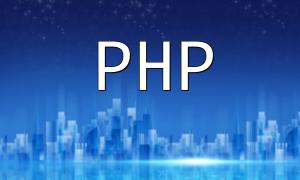PHP (Hypertext Preprocessor), a popular open-source server-side scripting language, is widely used in dynamic web development. Its efficient execution performance directly affects website fluidity and response speed, thereby enhancing the overall user experience. Today, PHP has become the preferred development language for many renowned internet companies, and its performance advantages are particularly evident in improving user satisfaction.
Before PHP scripts are executed, they must be compiled into binary Opcode code, a process that can be time-consuming. Opcode caching technology caches the compiled code in memory, avoiding redundant compilation and significantly improving execution efficiency. Common caching tools, such as APC (Alternative PHP Cache), can effectively accelerate PHP code execution.
<span class="fun">sudo apt-get install php-apc</span>
Database operations are often a performance bottleneck in web applications. By using caching systems like Memcached or Redis, frequently accessed data can be cached in memory, reducing the number of database queries and significantly improving data access speed. For example, to install Memcached, use the following command:
<span class="fun">sudo apt-get install memcached</span>
Optimizing PHP code structure and writing is equally important. For example, using single quotes to define strings rather than double quotes avoids unnecessary variable parsing, thus improving code execution efficiency. An example is as follows:
$str1 = 'hello, world'; // Regular string
$str2 = "hello, {$name}"; // Double-quoted string with variable parsing
Here, $str1 is a regular string and has higher execution efficiency, while $str2 contains a variable, causing additional resource consumption during PHP parsing, which impacts performance.
Page load speed is one of the key factors influencing user experience. By using CDN (Content Delivery Network) technology to cache static resources, the distance between the client and server can be effectively shortened, improving load speed. In addition, combining PHP's Opcode caching and database caching technologies can further reduce page response times.
Efficient API responses are also crucial for user experience. Caching mechanisms, optimizing database access (such as using Redis), designing reasonable interface data structures, and optimizing PHP code and server configurations (such as Nginx) can all significantly improve API response speed, ensuring smooth application performance.
PHP, with its excellent performance and flexibility, has become a vital tool in web development. By effectively utilizing Opcode caching, database caching, and code optimization technologies, web application response speed and user experience can be significantly improved. Continuous optimization not only reduces user wait times but also enhances user satisfaction, helping websites run smoothly and efficiently.









